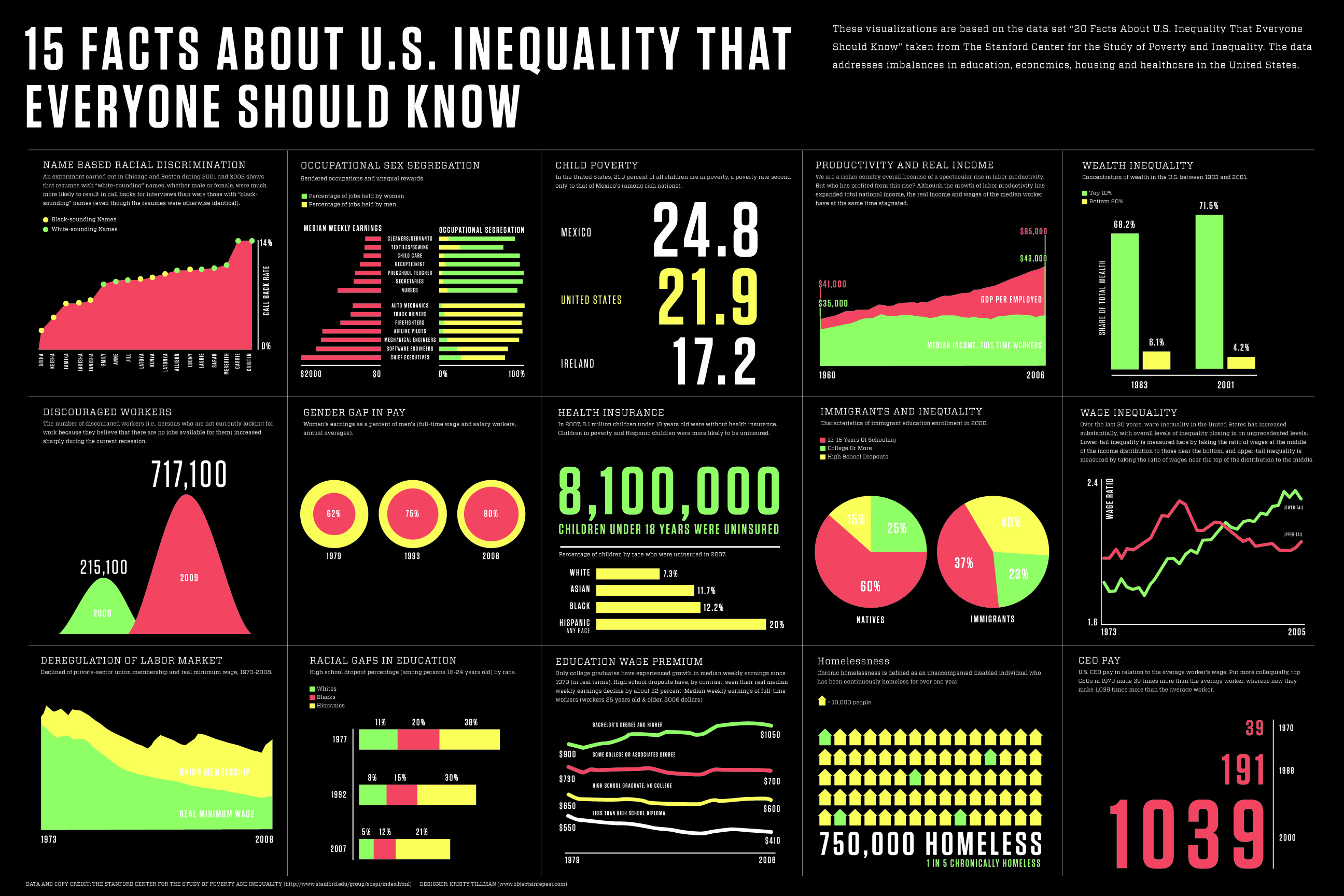Back in April, Sociological Images posted about some amazing graphics that very nicely show the level of economic inequality there is in the US.
At the time, I glanced over them briefly - it was a lot of stuff I'd seen / read about before, so I didn't get too blown away. However, given the OWS protests, something made me go back and look at the post more carefully, and I was surprised that the first sentence reveals that the source of the data for these images is The Stanford Center for the Study of Poverty and Inequality. I was fascinated to learn that such a thing exists and it's a resource worth checking out if you want to know more about these issues than you're getting from the mainstream media, or if you need to explain to someone else what these are. Many of the statistics that OWS protestors are citing have either been generated by the center or are from there originally and there are a ton of additional resources there, including, but not limited to:
- Quick links to 20 facts everyone should know about poverty and inequality in graphic form bc hey, everyone likes pictures
- A couple of quizzes you can take to test your own knowledge about these issues
- Viewing or subscribing to Pathways, their free PDF publication
- Links to relevant news items
- A whule slew of more specific pages on a long list of issues ranging from food chide to implicit bias.
And finally, buried under the Get Involved tab, they essentially address the biggest criticism that I've heard about the OWS movement thus far: no one seems to know what the hell these people really want. The Stanford center's website has two pages addressing two levels of specificity. One is Bold Visions, which is the level at which I think the movement is currently operating, and while it's good to have big goals, I think a lack of specificity is preventing many people from taking them seriously. The other section is Pragmatic Proposals and deals with specific ways these issues could be addressed with personal action and with policy, thereby answering this criticism. It makes me wonder why these specific policies aren't being discussed more and makes me wonder if they will be in future.
If you want to bone up on what these suggestions are before they become news, you can do so with the help of Stanford. I know I'm going to.

Comments